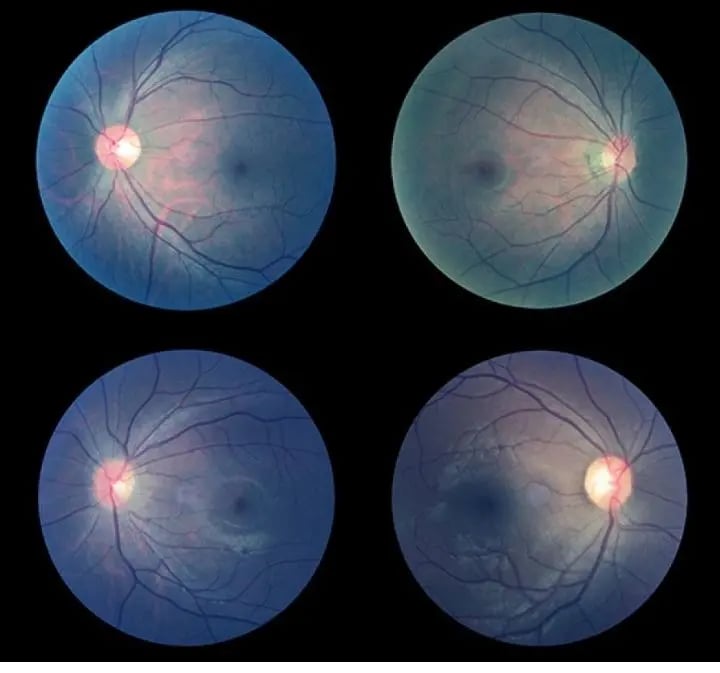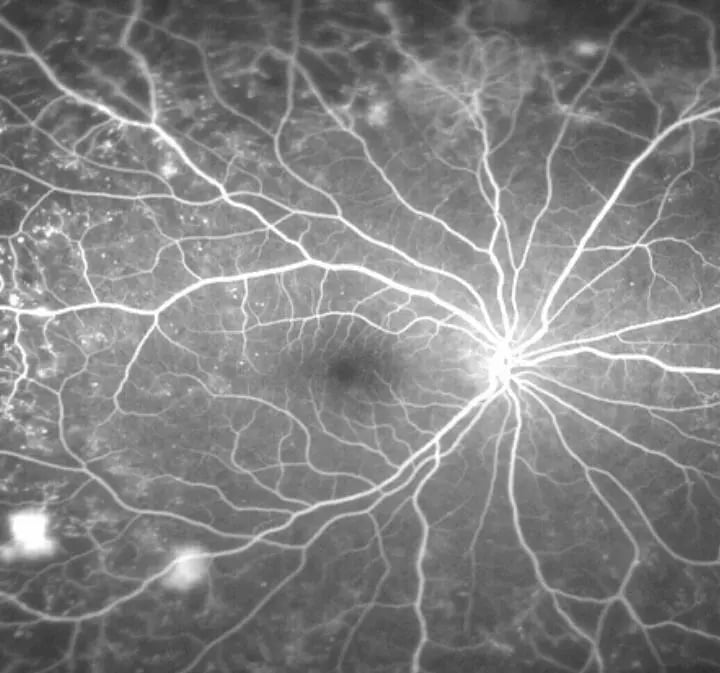Angiography


Angiography
Angiography is a test that allows detailed views of retinal blood vessels and the choroid, and to map the back of the eye.
This diagnostic test produces imaging of the back of the eye with a device called angiographer, after injecting contrast media such as fluorescein or indocyanine in the eye. Such imaging may reveal vascularization disorders which are more difficult to appreciate in a retinography, they are used to map the retinal vascular tree.
What is it useful for?
It is a standard technique to study diseases in the ocular vessels and in retina in general.
Recommendations for this test:
- Be at the information counter one hour before your appointment.
- Bring a copy of your clinical record
- Don’t eat any food at least 2 hours before the test.
- If the test is in the morning, light breakfast is suggested (herbal tea, aguapanela, fruit juice in water, crackers, a slice of bread or a toast)
- If the test is in the afternoon, light lunch is suggested (a serving of soup, and fruit juice in water).
- If the exam is in the afternoon, a light lunch is recommended (portion of soup and juice in
- water).
- Do not ingest any fat or dairy products the day before the test (milk, cheese, butter, yogurt, eggs, chocolate, etc.).
- Take any medication that you usually use, but with little water: antihypertensives (for high blood pressure), antibiotics (for infections), anticoagulants (to avoid blood clots), anxiolitics (tranquilizers), thyroid medications, etc.
- Apply neither insulin nor hypoglycemics before the test (medication for diabetes / high sugar levels)
- If the specialist prescribes a creatinine test before the angiography, bring the results, the day before, which should be within 30 days of the date of such test.
- Pupil dilation is required during the procedure, for this reason it is mandatory to bring accompaniment.
- Don’t drive after the test, or do any other activities that imply risks.
- Don’t do any activities that imply close vision during the first 4 or 6 hours, depending on each patient’s condition.
✕

 Pay your appointment
Pay your appointment

